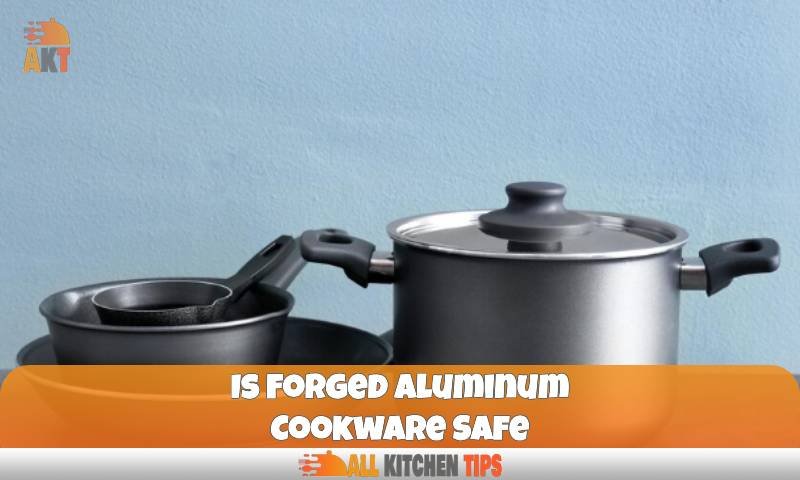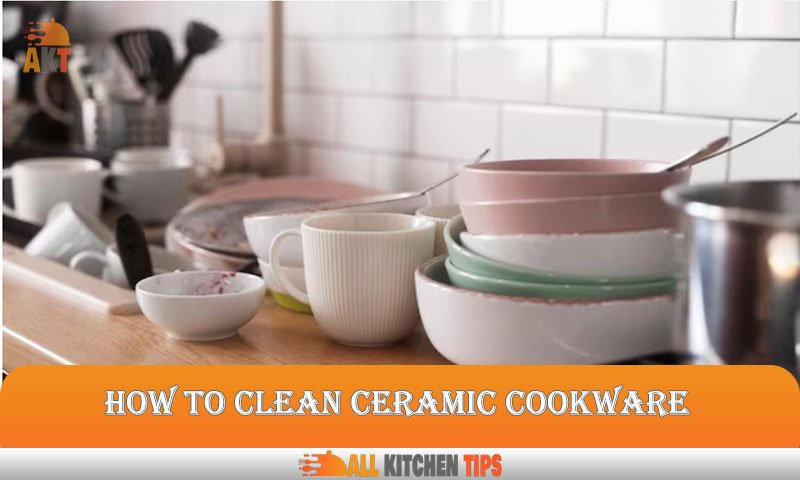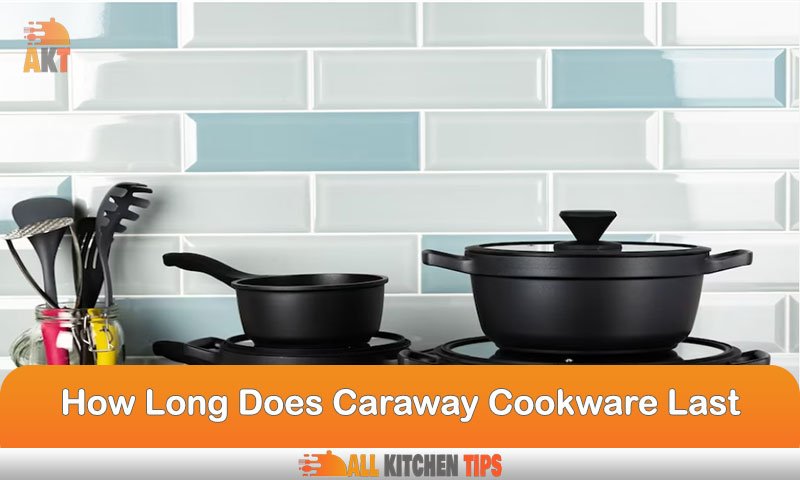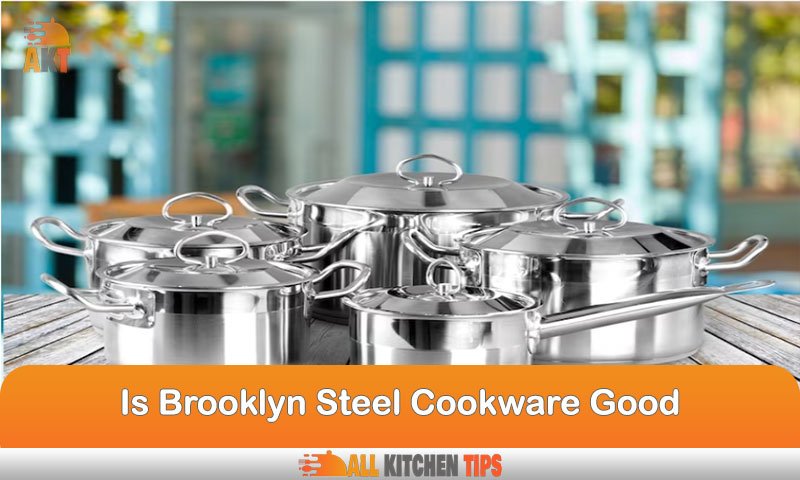Yes, forged aluminum cookware is safe for cooking. Forged aluminum cookware is a popular choice for both professional and home cooks because it is lightweight, durable, and conducts heat well.
However, some people have raised concerns about the safety of using aluminum cookware due to the potential for leaching aluminum into food. Fortunately, the forging process used to make this type of cookware creates a non-porous surface that prevents this from happening.
Additionally, most high-quality aluminum cookware is coated with a non-stick surface, further reducing the risk of leaching. As with any cookware, it is important to use and care for it properly to ensure its longevity and safety. Overall, forged aluminum cookware is a great choice for safe and efficient cooking.
Understanding Forged Aluminum Cookware
What Is Forged Aluminum Cookware?
Cookware made of forged aluminum is produced by applying intense pressure to aluminum to press it into the desired shape. The result is a highly durable and strong piece of cookware that can withstand high heat and regular use.
Unlike cast aluminum cookware, which is produced by pouring molten aluminum into a mold, forged aluminum cookware is produced by applying force.
How Is Forged Aluminum Cookware Made?
The process of making forged aluminum cookware begins with a block of aluminum, which is heated to a high temperature. The heated aluminum is then placed into a press, where it is subjected to high pressure. The pressure forces the aluminum into the desired shape, creating a piece of cookware that is strong, durable, and highly resistant to deformation and warping.
Advantages Of Forged Aluminum Cookware Over Other Materials
Forged aluminum cookware is a popular choice among professional chefs and home cooks alike. There are several advantages to using forged aluminum cookware over other materials, such as:
- Durability: Forged aluminum cookware is strong and durable, meaning it can withstand high heat and regular use without becoming damaged or deformed.
- Heat distribution: Forged aluminum cookware is an excellent conductor of heat, meaning it heats up quickly and evenly. This allows food to cook evenly without hot spots or burning.
- Non-stick: Many forged aluminum cookware sets come with a non-stick coating, making them easy to clean and preventing food from sticking to the surface.
- Lightweight: Forged aluminum cookware is lightweight, making it easy to handle and comfortable to use.
- Versatility: Forged aluminum cookware can be used on a variety of cooktops, including gas, electric, and induction.
Overall, forged aluminum cookware is a great choice for anyone looking for a durable, high-quality, and versatile set of cookware that can handle regular use and high heat.
The Health Concerns Surrounding Forged Aluminum Cookware

Is Forged Aluminum Cookware Safe?
When it comes to cookware, safety is a top priority. Aluminum, an affordable and lightweight material, is a popular choice for manufacturing cookware. However, aluminum can be toxic when consumed in large amounts, leading to health concerns surrounding forged aluminum cookware.
The Risk Of Aluminum Leaching Into Your Food
Cooking with aluminum cookware poses a risk of aluminum leaching into your food, particularly if the cookware is scratched, pitted, or exposed to acidic foods. This is because aluminum can react with acids, compromising the integrity of the cookware and leaching aluminum into your food.
The Potential Negative Effects Of Consuming Large Amounts Of Aluminum
Consuming large amounts of aluminum can cause negative health effects, including gastrointestinal problems, kidney problems, and bone and brain disorders. This is particularly true for individuals with compromised immune systems, children, and the elderly.
To reduce the risk of aluminum exposure, it is important to limit the use of aluminum cookware and to properly care for your cookware.
How To Identify Forged Aluminum Cookware Vs. Anodized Aluminum Cookware
Not all aluminum cookware is created equal. Some aluminum cookware is forged, while others are anodized. To identify between forged and anodized aluminum cookware, consider the following:
- Forged aluminum cookware has a thicker, stronger base, making it less susceptible to warping.
- Anodized aluminum cookware has a non-stick surface and is less likely to scratch or pit.
- Look for a label or marking on the cookware that identifies it as forged or anodized aluminum.
Ultimately, while forged aluminum cookware may pose a risk of aluminum leaching into your food, proper care, and limited use can mitigate this risk. By identifying the type of aluminum cookware you have and taking steps to reduce aluminum exposure, you can make informed choices about your cookware and ensure the safety of your meals.
Tips For Safe Use Of Forged Aluminum Cookware
As a cook, you’ve probably come across different types of cookware on the market. One type of cookware that’s caught the attention of many is forged aluminum cookware. But is it safe? Let’s dive into the details.
How To Minimize The Risk Of Aluminum Leaching Into Your Food
While forged aluminum cookware is safe for use in most cases, it’s essential to take precautions to minimize the risk of aluminum leaching into your food. Here’s how:
- Only use undamaged cookware because scratched or pitted aluminum can react with acidic foods.
- Avoid cooking acidic foods in aluminum cookware as they react easily with aluminum.
- Hand wash the cookware with mild soap and warm water. The high temperature of the dishwashers can cause pitting that increases the risk of aluminum leaching.
- Discoloration of the cookware does not necessarily mean that it’s unsafe. However, if you notice any pitting, it’s wise to replace the cookware.
Alternatives To Forged Aluminum Cookware
If you’re looking for alternatives to forged aluminum cookware or want to avoid aluminum cookware altogether, consider the following options:
- Stainless steel cookware: Stainless steel is a popular choice due to its durability, strength, and resistance to corrosion. It’s also easy to clean and does not react with food.
- Cast iron cookware: Cast iron cookware is ideal for searing beef and chicken because of its ability to retain heat. It doesn’t react with acidic food, and with proper seasoning, it offers excellent non-stick properties.
- Ceramic cookware: Ceramic cookware is made from natural materials and does not contain harmful chemicals. It’s easy to clean, non-reactive and can withstand high temperatures.
Industry Standards And Regulations For Cookware
The cookware industry is heavily regulated to ensure that the products in the market are safe for use. Here are some of the industry standards and regulations for cookware:
- Fda regulations: The united states food and drug administration has specific regulations that dictate the safety of cookware. It regularly tests cookware products to ensure that they meet the required safety standards.
- Material regulations: The materials used in cookware production should meet specific standards to ensure safety. For example, the production of ceramic cookware should not use lead, cadmium, and other harmful metals.
- Certification marks: Cookware manufacturers should display certification marks on their products to show that they meet safety standards, such as the underwriter’s laboratories (ul) mark.
Choosing The Right-Forged Aluminum Cookware
We all want safe cookware that’s long-lasting, can handle recipes from the basics to complex dishes, and retains heat while cooking. When it comes to those criteria, forged aluminum cookware is one of the best options to choose from. Here are some key points you should consider when shopping for forged aluminum cookware.
Brands And Products Recommended By Experts
Choosing cookware can be complicated, and there are plenty of options available on the market. To make it easier, we’ve narrowed it down to the most recommended brands and products by the experts:
- Cuisinart chef’s classic non-stick hard-anodized
- T-fal ultimate hard-anodized nonstick
- Anolon advanced hard-anodized nonstick
- Calphalon Classic non-stick aluminum
Each of these brands and products has its unique features, benefits, and drawbacks, so do some research to determine which one will best suit your cooking needs.
Considerations For Your Cooking Habits And Preferences
Everyone has different cooking habits, and what suits one person might not work for another. Here are some considerations to keep in mind when selecting your forged aluminum cookware:
- Size: Consider the sizes of the pots and pans that you typically use in your cooking to determine the size of the cookware you need.
- Stovetop vs. oven: Decide whether you’re going to use your cookware primarily on the stovetop or in the oven, and choose accordingly.
- Handle design: Make sure the handle design is comfortable and easy to grip.
- Non-stick coating: If you’re looking for a non-stick option, pay attention to the type of non-stick coating used as some are more durable than others.
Finding The Best Deals And Discounts
Cookware can be expensive, but finding the best deals and discounts can make all the difference. Here are some ways to save money on your forged aluminum cookware:
- Compare prices: Look at different stores or check online for price comparisons to get the best deal.
- Wait for sales: Many stores often have holiday promotions or seasonal sales, so be sure to look out for those.
- Consider buying in sets: Buying a set of cookware can be cheaper than buying individual pieces.
By considering the brands and products recommended by experts, your cooking habits and preferences, and the best deals and discounts on the market, you can find the perfect forged aluminum cookware that is both safe and reliable.
Caring For Your Forged Aluminum Cookware

Is Forged Aluminum Cookware Safe?
Cookware is an essential part of our kitchens. Finding the perfect cookware that can help you whip up delicious meals is every home chef’s dream. Forged aluminum cookware has become popular due to its durability, even heating, and versatility in the kitchen.
However, some people are still unsure if it’s safe to use. In this blog post, we will dive deeper into forged aluminum cookware and talk about caring for it.
Cleaning Tips And Tricks
Maintaining your forged aluminum cookware is essential to prolonging its life and ensuring that it performs optimally. Cleaning it properly is the first step in proper care. Here are some cleaning tips for your forged aluminum cookware:
- Hand wash your cookware using warm soapy water and a soft sponge. Avoid using abrasive scrubbers that can scratch the surface.
- Never let your cookware soak in water for an extended period as this can damage the surface.
- If you’re dealing with tough stains or burnt-on food, use a mixture of baking soda and water to make a paste. Apply the paste to the areas that need cleaning and let it sit for a while before wiping it off.
- Dry your cookware thoroughly before storing it.
Storage Best Practices
How you store your forged aluminum cookware can also affect its longevity. Here are some storage tips to help you keep your cookware in excellent condition:
- When stacking your cookware, use felt or paper towels to separate each piece to avoid scratching or damaging the surface.
- Store your cookware in a cool, dry place, away from moisture, which can cause rusting.
- Do not stack your cookware too high as it may not only scratch the surface of your cookware but it can also damage the handles if there’s too much weight.
Maintenance And Repair Tips To Extend The Life Of Your Cookware
To prolong the life of your forged aluminum cookware, you must maintain and repair it as needed. Here are some tips to help you keep your cookware in tip-top shape:
- Check your cookware regularly for dents, cracks, or scratches. If you notice any damage, stop using it immediately and seek repair or replacement.
- Overheating your cookware can cause warping or deformity. Always cook at the recommended temperature and avoid overheating.
- If you notice any discoloration on the surface of your cookware, clean it immediately to avoid further damage.
- If your cookware has a non-stick coating, avoid using metal utensils that can scratch the surface. Instead, use silicone or wooden utensils.
Maintaining your forged aluminum cookware is easy if you follow these tips. It’s safe to use and can be a valuable addition to your kitchen. Keep these tips in mind, and you’ll have cookware that lasts a lifetime.
FAQs
Is Forged Aluminum Cookware Safe For Your Health?
Yes, forged aluminum cookware is safe and commonly used in kitchens worldwide.
What Are The Benefits Of Using Forged Aluminum Cookware?
The benefits of using forged aluminum cookware include even heat distribution and durability.
Can You Use Metal Utensils With Forged Aluminum Cookware?
Yes, you can use metal utensils with forged aluminum cookware without causing damage.
Is Cleaning Forged Aluminum Cookware Difficult?
Cleaning forged aluminum cookware is easy and can be done with soap and water. Avoid harsh, abrasive cleaners.
Conclusion
Based on the information presented above, it is evident that forged aluminum cookware is safe to use if it is properly processed and manufactured. Buying goods from reliable brands and producers who follow strict safety regulations can help ensure this.
Additionally, it is crucial to follow the instructions for use and care to minimize any potential safety risks. While concerns about the use of aluminum in cookware exist, studies have shown that the amount of aluminum leached during cooking is negligible compared to the daily intake from other sources such as food, water, and medications.
Therefore, based on the available evidence, it is safe to use forged aluminum cookware in the kitchen as long as proper safety measures are taken. Overall, choosing high-quality forged aluminum cookware can be a safe and durable option for home chefs.





